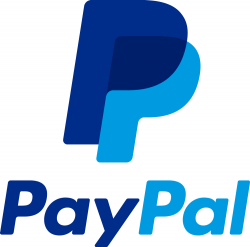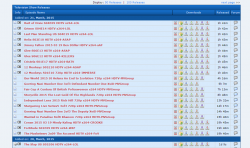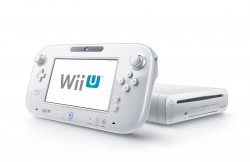Weekly News Roundup (24 May 2015)
Quite a lot of stuff to go through this week. But I have this feeling that next week will be really quiet – this kind of thing does tend to happen more often than not. I haven’t quiet worked out the psychology behind this, but things like holidays (Memorial Day in the US), weather can all have a big effect on news, I’ve found. Let’s see if I’m right next week.
Let’s get started …
![]()
Industry solutions to the piracy problem. Sounds like a good way to get things done without government intervention, but there’s a reason why we have government to set rules. Because there are rules!
Industry solutions is often just another way for big companies to work together with other big companies to screw us consumers, bypassing fairness, due process and all the things that are designed to protect us. So what happened to open source developer Andrew Sampson’s PayPal account, on the orders of the MPAA, shouldn’t come as a shock. Andrew made the mistake of doing something that pissed off the MPAA (by making the torrent search engine Strike), and also the second mistake of getting PayPal involved (by having a donation button, albeit only temporarily, on Strike’s website). The MPAA contacted PayPal, and now Andrew’s entire account is frozen, despite only a very small amount of money in his account having anything to do with Strike (the other funds come from his other non related projects).
And even if all of Andrew’s PayPal money was related to Strike, it shouldn’t mean that the MPAA and PayPal, without any sort of legal procedure, can freeze his account like this. There hasn’t been any legal documents, a court case, a judgement or ruling, and it’s all based on the untested assertions of the MPAA. And since when is making a search engine illegal?
None of this passes the fairness test, and because there’s no due process, Andrew has no avenue of appeal. So it will be 180 days before Andrew can access his own money, most of which were earned in a way that had nothing to do with the MPAA.
This is all part of the MPAA’s “going after the money” initiative, one that is ironically also supported by Google. This is because going after the money means the MPAA isn’t going after the content, which is where Google might get into trouble. Going after the content means search results filtering (something the MPAA wants, but Google has been able to successfully prevent so far), but it mainly means site blocking and shut-downs these days.
But according to the EU, shutting down access to piracy sites is not only not effective, but it also makes future copyright enforcement much more difficult. The study looked at the closure of German streaming site Kino.to, and found that shortly after the closure, existing sites and new sites filled the void left by Kino.to. This made the piracy scene much more fragmented, and also means it becomes harder and harder to control piracy (as opposed to dealing with one big site, you now have hundreds of smaller sites that you need to deal with).
The study also found very little movement towards legal alternatives following the shut-down, meaning that even if piracy was eliminated, the financial gain for rights-holders will be minimal.
In other words, shutting down piracy sites or censoring them is a costly exercise that has no real long term benefits, either in reducing piracy or increasing revenue. Won’t stop the likes of the MPAA from trying though.
Not that I want to give the MPAA any ideas, but one of the oldest torrent groups this week did get shut down via a method that Hollywood has not tried yet – a scam! TV torrent site EZTV is no more because all of their domain names have been stolen by a group of scammers. This is the same group that managed to secure EZTV’s .it domain name a while back (that was due to improper actions by the registrar), and then apparently faked contact details to illegally obtain EZTV’s .se domain name. This was key because EZTV’s admin used the .se domain name as the primary email contact for all other registrant accounts, meaning the scammers were able to redirect emails meant for the admin to their own servers, reset all passwords to accounts that were signed up with that email (including other registrar accounts for EZTV’s other domain names), and successfully completing the “hostile takeover”.
Regardless of what you think about piracy, it’s a sad end for EZTV and also presents a current danger for downloaders who continue to use EZTV. It will be easy for the new “owners” of the site to inject malware and fake downloads into their index, even if EZTV’s accounts on other sites like The Pirate Bay have all been suspended on request from the original admin team.
![]()
Is the PS4 due for a price cut? With the Xbox One beating the PS4 during the holidays and then again in April, all thanks to temporary and now permanent price cuts, Sony might be thinking that a price cut is exactly what’s needed to maintain momentum. And according to leaked documents, it might just happen sooner rather than later.
A document from Sony’s official retail loyalty site for their employees seems to point to a new $349 price tag for the PS4, which would bring it level with the Xbox One. Without the document being authenticated, treat all of this as a rumour for now, but it does make sense for Sony to consider a $50 price cut right now.
While the PS4 is still easily beating the Xbox One worldwide, the crucial US market is looking a bit more shaky for Sony. In the previous generation, Microsoft implemented a series of successful price cuts for the Xbox 360, despite it easily outselling the PS3 in the US, and this helped the console maintain momentum as the sales leader up to and until the PS4’s release. Sony could and should use a similar strategy to keep the Xbox One at arm’s length, and while hardware revenue will take a hit in the short term, having a strong sales lead will help revenue in the long term.
Now you might notice that I haven’t mentioned the Wii U in quite a while. That’s because there’s really not much to mention unfortunately, with the Wii U doing rather badly in April (43,000 units, compared to the sales leader Xbox One’s 187,000). This suggests that Nintendo needs to bring out the Wii U’s successor pronto, but Nintendo president Satoru Iwata’s remarks that the Nintendo NX may not be a replacement for the Wii U (and the 3DS) does seem odd.
It might be just marketing talk, trying to position the NX as something revolutionary rather than evolutionary, but Iwata could also be hinting at the fusion of handheld and console gaming, something that the Wii U has already taken a step towards.
Whatever it is, it can’t come soon enough, as the Wii U is really struggling now. It had a reprieve thanks to Mario Kart, but with Zelda delayed until who knows when, the Wii U looks like a dead duck right now and the longer this drags out, the harder it may be for Nintendo to get a good start with the NX.
——
Fans of streaming, and particularly Australian fans, don’t forget to visit streambly.com.au for more streaming related news stories, like Spotify’s new video content, Netflix’s new interface and live sports streaming – too much stuff to cover in detail in this week’s WNR.
See you next week!




